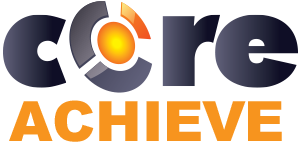Empowering Social Change: Leveraging an LMS for Non-Governmental Organizations (NGOs)
June, 23 2023
Other posts:
Enhancing Team Dynamics for Effective Group Decision-Making with LMS Integration
Organizations increasingly rely on collaborative efforts to solve complex problems, innovate, and adapt to change, but how do we ensure that collaboration is happening.
Maximizing Small Business Potential with Training Technology
Training technologies can push small businesses ahead of their competitors, but what are the factors that go into choosing the right technology?
Unlocking Employee Potential: The Transformative Benefits of an Interactive Learning Management System (LMS)
Interactive training allows for unlocking employee potential, but how is it done?
Building a Robust Sales Pipeline with Training
Every organization wants a streamlined sales pipeline, but building one requires a series of interlocking activities with one of the most important being training.
Strategies for Adapting In-Person Training to Online Platforms
Online training is one of the most flexible ways of delivering training across organizations, but how do you even begin to adapt in-person training into online?
Non-Governmental Organizations (NGOs) are vital for pushing change and one of the major ways they can achieve this is through teaching.
Non-Governmental Organizations (NGOs) play a vital role in driving social change and addressing pressing global issues and are often more representative of what most people want or believe in. To achieve their missions effectively, NGOs need to empower their teams with the necessary knowledge and skills. This is where a Learning Management System (LMS) can make a significant difference. An LMS can empower NGOs by providing them with a robust platform for training, collaboration, and capacity building.
Centralized Training Hub
An LMS serves as a centralized training hub for NGOs, enabling them to create, manage, and deliver a wide range of training programs. Whether it's onboarding new staff, conducting compliance training, or building skills for community development, the LMS offers a scalable and, most importantly, an accessible solution. NGOs can easily develop engaging and interactive courses that align with their organizational objectives and share them with employees, volunteers, and partners worldwide.
Global Reach and Accessibility
NGOs often operate in diverse geographic locations, making it challenging to provide consistent training to individuals across different regions. The flexibility of an LMS helps break down these hurdles—all one needs, for CoreAchieve, is a web browser and internet connection. The LMS allows training materials to be translated into multiple languages, ensuring accessibility for learners from different cultural and linguistic backgrounds. This global reach enables NGOs to disseminate knowledge, best practices, and social impact initiatives to a broader audience, amplifying their mission and creating a unified learning experience.
Collaboration and Knowledge Sharing
NGOs thrive on collaboration and knowledge sharing among team members, volunteers, and external partners. An LMS facilitates these interactions by providing features such as discussion forums, social learning communities, and blended options. Users can engage in meaningful discussions, share experiences, and learn from each other's expertise. This collaborative learning environment fosters innovation and encourages peer support.
Tracking and Reporting
NGOs often need to demonstrate the impact of their programs to donors, stakeholders, and the communities they serve. An LMS offers robust tracking and reporting functionalities, providing real-time insights into learner progress, completion rates, and assessment results. NGOs can generate comprehensive reports and analytics to showcase the effectiveness of their training initiatives. This data-driven approach not only helps in measuring the impact of learning but also strengthens accountability and transparency within the organization.
Continuous Learning and Capacity Building
NGOs operate in dynamic environments, tackling complex social challenges that require continuous learning and capacity building. An LMS supports NGOs in their journey of continuous improvement by offering opportunities for ongoing education, professional development, and upskilling. Through the LMS, NGOs can provide access to relevant resources, webinars, expert-led courses, and microlearning modules. This continuous learning approach equips NGO teams with the knowledge and skills needed to adapt to evolving social needs and drive sustainable change.
By harnessing the power of an LMS, NGOs can unlock their potential to make a lasting impact on society. From centralized training management to global reach, collaboration, and continuous learning, an LMS empowers NGOs to drive social change effectively. By investing in an LMS tailored to their unique needs, NGOs can equip their teams with the knowledge, skills, and resources required to create a better world.
Get started with CoreAchieve today for free.
Photo by Corey Young on Unsplash

Leave comment: